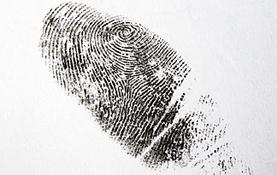Apple could dominate m-commerce with iPhone 5S biometrics

A recent spate of rumors claim that Apple will be including biometric technology in the upcoming iPhone 5S in the form of a fingerprint reader embedded in its home button.

I hope that the rumors are true.
If Apple's July 2012 acquisition of AuthenTec wasn't enough evidence, purported leaked photos of the iPhone 5S' rear shell and home button flex cable might be the smoking gun.
Unlike near-field communication (NFC), which Apple skipped in the iPhone 5 (much to my chagrin), biometric technology is attractive to both business users and consumers alike.
I have an enterprise Exchange account configured on my iPhone which dramatically alters the iOS security policy. For example, it requires an iOS passcode immediately and sets the maximum Auto-Lock time-out to 5 minutes. As a result, I have to enter the passcode on my iPhone 50-75 times per day. A fingerprint sensor would be a godsend for me.
In addition to convenience, biometrics add a new level of security to iOS that would be extremely attractive to enterprise users and IT departments. Unlike an iOS passcode, which could be stolen from a password database or a printed note, a fingerprint is completely unique and must be physically present to be authenticated.
Glyn Williams wrote on Quora:
A fingerprint scanner on a phone will mean that a transaction can have three important sources of identity verification:
The presence of a personal device registered to the individual.
The location of the device recorded at the time of the transaction
The biometric recognition of the individual present and giving their authorisation recorded at the time of the transaction.
While biometrics got off to an admittedly shaky start — early fingerprint scanners were defeated by severed digits, thinking putty, latex strips, ballistics gels, and even photocopies — it's believed that AuthenTec's technology and patent portfolio could increase security by requiring a matching print, human body temperature, pulse rate, and skin conductance.
To be successful, Apple's iPhone implementation will have to be reliable and quick. Cheaper fingerprint scanners (like consumers models from Microsoft, or the one installed at your gym) can require several attempts and/or take several seconds to authenticate. If reliability is under 75 percent or if the user can enter a passcode faster than it can authenticate a fingerprint, users won't adopt it and it will be a failure. There are also hurdles in cold weather climates where users wear gloves, but the biometrics will likely be able to switched off via the Settings app.
Apple's AuthenTec acquisition isn't just about security, though; it's also about NFC, mobile wallets, payments, and mobile commerce. Apple has over 575 million iTunes account holders (most with credit cards on file) and could easily use biometrics and its trojan horse PassBook app as the digital wallet of the future.
It could be super slick: Walk into a store, press the home button on your iPhone to pay, and have your purchase billed to your iTunes account. Apple could also make a fortune in transaction fees in the process. And what vendor wouldn't jump at the opportunity to accept iTunes as a new payment tender? Especially if the hardware and startup costs are minimal because the customer carries the hardware in their pocket.
Where do you stand on biometrics? Passing fad or the future of m-commerce?